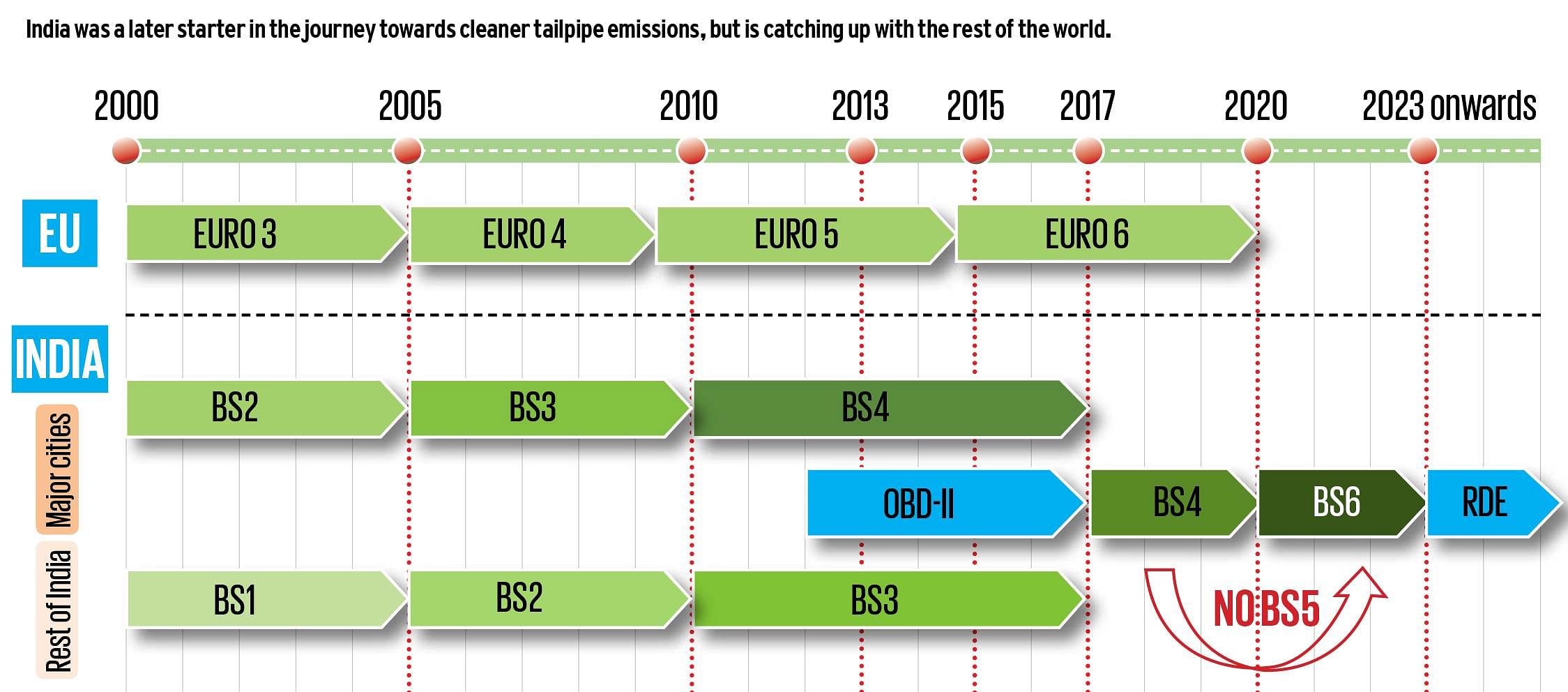Dr Reji Mathai: ‘This decade will see very strong policies coming in for auto.'
ARAI director expects greater regulatory push for the Indian automotive industry in the coming decade with a need for holistic solutions.
India stepped on the emission roadmap in 2003, when emissions regulations were brought into force. “Initially, we saw BS III and BS IV norms getting implemented between 2003 and 2010 and the next committee was instituted in 2014-15, which suggested the evolution towards BS V and BS VI regulations,” said Dr Reji Mathai, director, ARAI.

Dr Mathai was part of the two-day Autocar Professional virtual conclave ‘Meeting Emission Challenges’, as a panellist.
He went on to applaud the auto industry and its allied sectors, on the huge BS VI accomplishment that was done in a record three-year timeframe last year. “Although there were several challenges during the BS VI journey because of the strict timelines, both the automotive and energy sectors must be appreciated for their efforts,” he said.
Coming to the ever-evolving challenges, Dr Mathai said, “The Indian automotive industry is always looking up to Europe but we have to also understand that India has cost-conscious consumers. As we move forward, we are aligning ourselves with European regulations and we are already closer to the RDE norms.”
“With respect to BS VI and RDE, we are moving in tandem with Europe, but what also makes us different is our dependence on imports,” he added.
“Having said that, while there is a lot of deliberation going on, we need to have clarity as to what needs to be attained (in terms of emission targets) as well as certain broad contours and timelines,” Dr Mathai remarked.
Policy roadmap
Dr Mathai said that almost seven-eight years have passed since the last auto-fuel policy came in and we have not been able to aptly address the recommendations in these drafts, “They were made to offer holistic solutions rather than focusing just on emissions. I believe, in this decade, we will see very strong policies coming in for the automotive industry, even though their implementation might take some time.”
“For instance, we can already see better regulatory mechanisms getting enforced, particularly with respect to the older vehicles. The implementation of the scrappage policy to remove older, polluting and unsafe vehicles from the road is a step in the right direction,” he added.
“So, all of these things need to be put together to try and bring holistic solutions. Alongside, we need to provide clear-cut guidelines to the industry as well as what the penalty will be for CAFE norms, which are, at present, only for the passenger vehicle segment.
“There are industry players who are seriously looking at CAFE, we need to ensure that they are rewarded for their efforts,” Dr Mathai concluded.
RELATED ARTICLES
Cosmo First diversifies into paint protection film and ceramic coatings
The Aurangabad, Maharashtra-based packaging materials supplier is leveraging its competencies in plastic films and speci...
JSW MG Motor India confident of selling 1,000 M9 electric MPVs in first year
The 5.2-metre-long, seven-seater luxury electric MPV, which will be locally assembled at the Halol plant in Gujarat, wil...
Modern Automotives targets 25% CAGR in forged components by FY2031, diversifies into e-3Ws
The Tier-1 component supplier of forged components such as connecting rods, crankshafts, tie-rods, and fork bridges to l...






 29 Apr 2021
29 Apr 2021
 5762 Views
5762 Views





 Autocar Professional Bureau
Autocar Professional Bureau




